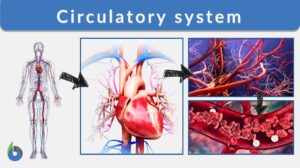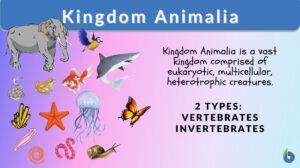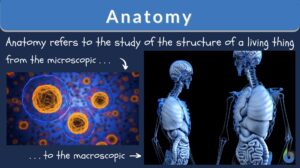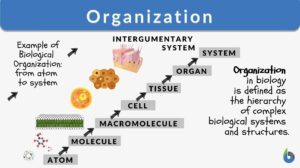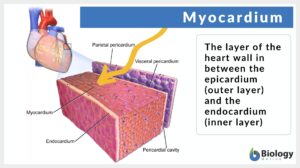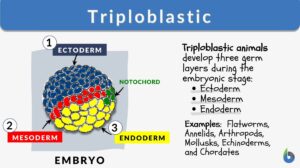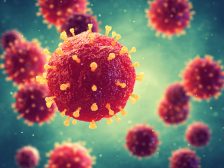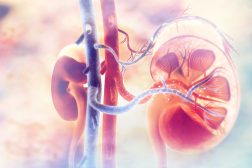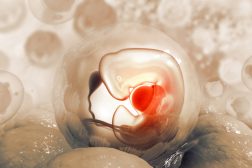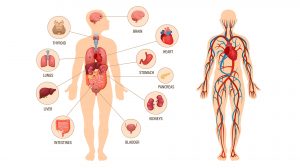Search Results for: circulatory system
Circulatory system
Circulatory System Definition noun The organ system responsible for the circulation and transport of oxygen, carbon... Read More
Closed circulatory system
Definition noun A type of circulatory system where blood circulates within closed vessels, thus, blood is distinct from... Read More
Open circulatory system
Definition noun A type of circulatory system wherein the hemolymph bathes the organs and tissues directly thus there is no... Read More
Circulatory fluid
Definition noun The fluid confined within the vessel in a closed circulatory system or that contained in a cavity (hemocoel)... Read More
Kingdom Animalia
Kingdom Animalia Definition Each person can say that they know of or can name at least one animal. However, do people know... Read More
Cardiovascular system
Definition noun The organ system in which the blood is pumped through the heart and circulates throughout the body through... Read More
Lymphatic duct
Definition noun, plural: lymph ducts A lymphatic vessel that carries lymph and drain it into the subclavian... Read More
Erythrocyte
Erythrocyte Definition Erythrocytes (red blood cells or RBCs) are the myeloid series of specialized cells that play an... Read More
Organization
Organization Definition The meaning of the term "organization" is very simple. It means the state wherein things are... Read More
Autocrine signaling
Autocrine Signaling Definition What is autocrine signaling? Autocrine signaling is a type of cell signaling wherein a cell... Read More
Myocardium
Myocardium Definition What is the myocardium of the heart? It is the muscular middle layer of the heart that is... Read More
Sagittal plane
The sagittal plane is the plane that allows us to see the world in bilateral symmetry. Whether reaching for a high shelf,... Read More
Triploblastic
Triploblastic Definition A triploblastic animal had three main layers of tissue during embryonic development. The central... Read More
Plasma volume
Definition noun The total volume of the blood plasma in the circulatory system Supplement The blood is comprised of plasma... Read More
Homeostasis
Homeostasis is the tendency not to stray from the range of favorable or ideal internal conditions. Such conditions must be... Read More
Biological Viruses
The prime directive of all organisms is to reproduce and survive and this also applies to viruses. Apparently, viruses are... Read More
Red blood cell
Definition noun, plural: red blood cells The blood cell containing hemoglobin and functions primarily to transport... Read More
Hemoglobin
Definition noun, plural: hemoglobins A biomolecule made up of haeme (i.e. oxygen-carrying, nonprotein, ferrous component)... Read More
Cell theory
What Is Cell Theory? Biological cell theory explains the idea of organismal constitution, structure, and function. It... Read More
Homeostasis of Organism Water Regulation
Osmoregulation Osmoregulation is the regulation of water concentrations in the bloodstream, effectively controlling the... Read More
Transudation
Definition noun (1) The act, process, or condition of transuding, i.e. the oozing or passing gradually of a liquid possibly... Read More
A Balanced Vitamin Diet – Vitamins A – K
As mentioned in the previous tutorial, a balanced diet is essential to a healthy organism. Deficiencies in particular... Read More
Growth and Development of a Human Baby
Continued from the initial human reproduction of the previous page in this tutorial. Upon arrival in the uterus, the... Read More
Chelicerate
Definition noun, plural: chelicerates Any of the species belonging to the subphylum Chelicerata Supplement The chelicerates... Read More
The Human Physiology
Physiology is the study of how living organisms function. Thus, human physiology deals specifically with the physiological... Read More
Cell adhesion
Cell Adhesion Definition Cell adhesion is the process in which a cell uses a specialized complex of proteins to get... Read More
